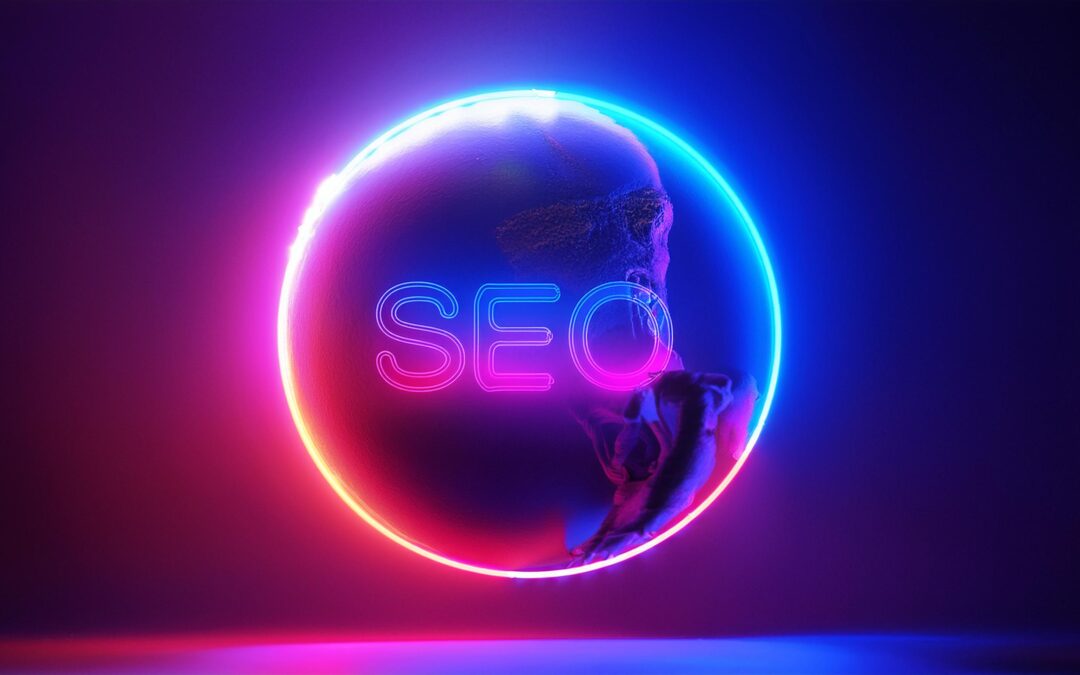The Dawn of a New Era
The digital landscape is in constant flux, with technologies emerging and evolving at breakneck speed. Among the most transformative developments of recent years is the rise of AI-powered language models, like ChatGPT. These tools have not only revolutionized how we interact with information but also posed significant challenges to established systems, particularly search engines.
What if ChatGPT, or similar AI models, could effectively replace traditional search engines? How would the world of Search Engine Optimization (SEO) adapt to this new paradigm? In this blog, we will explore the hypothetical scenario where ChatGPT kills search engines and the profound implications this shift would have on SEO.
The Current Role of Search Engines in SEO
Search Engines as Gatekeepers of Information
Search engines like Google, Bing, and Yahoo have long served as the primary gateways to the internet’s vast repository of information. SEO, as a discipline, evolved alongside these search engines, with the sole purpose of optimizing content to rank highly in search results. The better the optimization, the higher the chances of a website attracting organic traffic.
SEO Tactics and Strategies Today
Modern SEO involves various techniques, from keyword research and on-page optimization to link building and technical SEO. Businesses and content creators rely heavily on understanding search engine algorithms to create content that ranks well, thereby driving traffic, leads, and sales.
Enter ChatGPT: The AI Disruption
How ChatGPT Works
ChatGPT and similar AI models operate differently from traditional search engines. Instead of indexing the web and presenting ranked lists of links, these models generate responses based on a vast database of information. They can answer queries, provide summaries, and even engage in conversation, making them a powerful alternative to traditional search engines.
The Advantages of AI Models Over Search Engines
AI models offer several advantages:
– Personalized Responses: Unlike search engines, which provide generic search results, AI can tailor responses to individual users.
– Efficiency: Instead of sifting through pages of search results, users receive direct answers to their queries.
– Engagement: AI models can engage users in a conversation, offering a more interactive and satisfying experience.
The Hypothetical Death of Search Engines
A World Without Search Engines
Imagine a future where ChatGPT and similar AI models become the primary tool for information retrieval. Search engines, as we know them, gradually fade into obsolescence. This would represent a seismic shift in how people access information, and consequently, how businesses reach their audiences.
The Impact on Traditional SEO
In a world without search engines, the strategies that have dominated the SEO industry for decades would become obsolete. Keyword optimization, meta descriptions, and backlinking would no longer hold the same value if AI models like ChatGPT were the primary method of accessing information.
Redefining SEO in the Age of AI
The New Metrics: User Engagement and AI Relevance
The metrics determining content visibility would shift dramatically in this new paradigm. Rather than focusing on search engine rankings, businesses would need to optimize content for AI relevance and user engagement. The following factors would become critical:
– AI Readability: Ensuring content is easily digestible and understandable by AI models.
– User Interaction: Content that prompts user interaction and conversation would be prioritized.
– Quality and Depth: AI models would likely prioritize content that offers deep, comprehensive insights.
Content Creation Strategies
With AI models at the helm, content creation would need to evolve. The focus would shift from traditional SEO techniques to creating content that AI models deem valuable and useful. Here are some key strategies:
– Conversational Content: Developing content that aligns with the natural language processing capabilities of AI models.
– In-Depth Expertise: AI will favor content from sources that demonstrate a deep understanding of the subject matter.
– Interactive Media: Incorporating multimedia elements like videos, infographics, and interactive tools that can enhance user engagement and AI interpretation.
The Role of Data in the New SEO
Understanding AI Algorithms
Just as SEO experts have spent years deciphering Google’s algorithms, the future of SEO would involve understanding how AI models like ChatGPT process and prioritize information. This would require a deep dive into the mechanics of AI and machine learning, focusing on:
– Training Data: Understanding the datasets AI models are trained on and how this influences content recommendations.
– Algorithm Bias: Identifying and mitigating potential biases in AI algorithms to ensure fair content representation.
– Feedback Loops: Leveraging user feedback to refine AI interactions and improve content visibility.
Data-Driven Insights
Data will continue to play a crucial role, but the nature of data analysis will change. Instead of analyzing search engine rankings and click-through rates, businesses will need to focus on:
– Engagement Metrics: Tracking how users interact with AI-generated responses.
– User Satisfaction: Measuring the satisfaction of users with AI-driven interactions and content recommendations.
– AI Training Feedback: Contributing to the ongoing improvement of AI models through feedback loops.
Ethical Considerations and Challenges
The Monopoly of AI Models
If AI models like ChatGPT become the primary gatekeepers of information, there are significant ethical concerns to address. The monopoly of a few AI models could lead to:
– Information Control: A small number of companies could have disproportionate control over the information people access.
– Bias and Fairness: Ensuring AI models present unbiased, diverse perspectives would be a major challenge.
– Privacy Concerns: The data used to train AI models and the information AI collects from users could raise serious privacy issues.
Ensuring a Level Playing Field
One of the critical roles of SEO has been to level the playing field, allowing smaller businesses to compete with larger ones. In an AI-dominated world, ensuring that AI models don’t disproportionately favor established brands over newcomers would be essential to maintaining a fair digital marketplace.
The Role of SEO Professionals in an AI-Driven Future
Adapting Skills and Expertise
SEO professionals will need to adapt their skills to thrive in this new environment. The future SEO expert will need to:
– Understand AI and Machine Learning: A deep understanding of how AI models work will be essential.
– Focus on Content Quality: With AI models prioritizing high-quality content, SEO professionals will need to work closely with content creators to ensure their work meets the necessary standards.
– Engage in Continuous Learning: As AI models evolve, SEO professionals will need to stay updated on the latest developments and continuously adapt their strategies.
New Roles and Opportunities
While traditional SEO may decline, new roles and opportunities will emerge, including:
– AI Content Strategists: Professionals who specialize in optimizing content for AI models.
– User Experience (UX) Experts: With user engagement becoming a key metric, there will be a greater focus on improving the overall user experience.
– Data Analysts: The ability to analyze and interpret AI-driven data will be crucial for understanding user behavior and refining content strategies.
Potential Scenarios and Outcomes
Scenario 1: Coexistence of AI and Search Engines
One potential outcome is the coexistence of AI models and traditional search engines. In this scenario, users would rely on AI for certain types of queries while still using search engines for more complex or exploratory searches. SEO would need to adapt to optimize content for both platforms, balancing AI relevance with traditional ranking factors.
Scenario 2: The Dominance of AI
If AI models completely dominate, the SEO industry would undergo a radical transformation. The focus would shift entirely to optimizing content for AI, with traditional SEO practices becoming obsolete. This could lead to a more personalized and efficient content ecosystem, but also raise concerns about information control and bias.
Scenario 3: A Hybrid Approach
A hybrid approach could emerge, where AI models integrate more closely with search engines, enhancing their capabilities rather than replacing them. In this scenario, SEO would evolve to encompass both AI optimization and traditional search engine strategies, creating a more complex but potentially more balanced landscape.
Preparing for the Future
Embracing Change
The potential disruption caused by AI models like ChatGPT requires SEO professionals, content creators, and businesses to embrace change proactively. This means:
– Investing in AI Training:Developing a deep understanding of how AI works and how to optimize content for it.
– Focusing on User Experience: Enhancing the user experience will be key to maintaining relevance in an AI-driven world.
– Exploring New Opportunities: As traditional SEO practices evolve, new opportunities will arise in AI optimization, user engagement, and content strategy.
Staying Informed
The rapid pace of technological change means that staying informed is more important than ever. Businesses and professionals should:
– Follow Industry Developments: Keep up with the latest trends and advancements in AI, SEO, and digital marketing.
– Experiment and Innovate: Test new strategies and approaches to find what works best in an AI-driven landscape.
– Collaborate and Share Knowledge: Engage with the broader community to share insights, challenges, and solutions.
Conclusion: The Future of SEO in an AI-Dominated World
The hypothetical scenario where ChatGPT or similar AI models kill search engines represents a significant shift in how we access and interact with information. While the demise of traditional search engines would render many established SEO practices obsolete, it also presents new opportunities for innovation and growth.
In this new world, SEO would not disappear but evolve. The focus would shift from optimizing content for search engine algorithms to creating high-quality, engaging, and AI-relevant content. The skills and strategies required to succeed in this environment would change, but the core goal of SEO—connecting users with the information they seek—would remain.
As we look to the future, the key to success will be adaptability. By embracing new technologies, understanding AI models, and focusing on user engagement, businesses and SEO professionals can thrive in a world where AI leads the way. The future of SEO may be uncertain, but it is undoubtedly full of change and opportunity.


